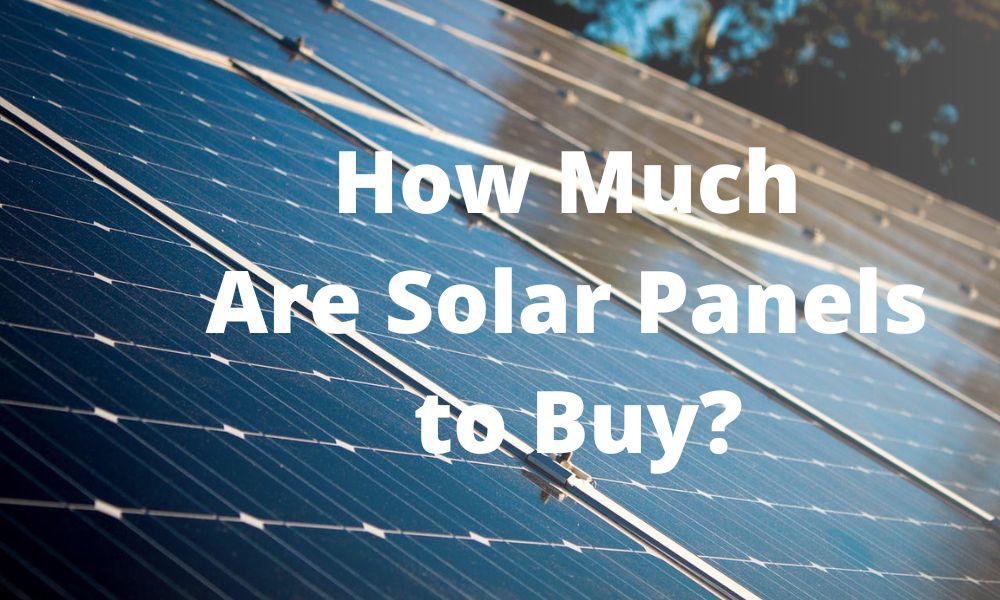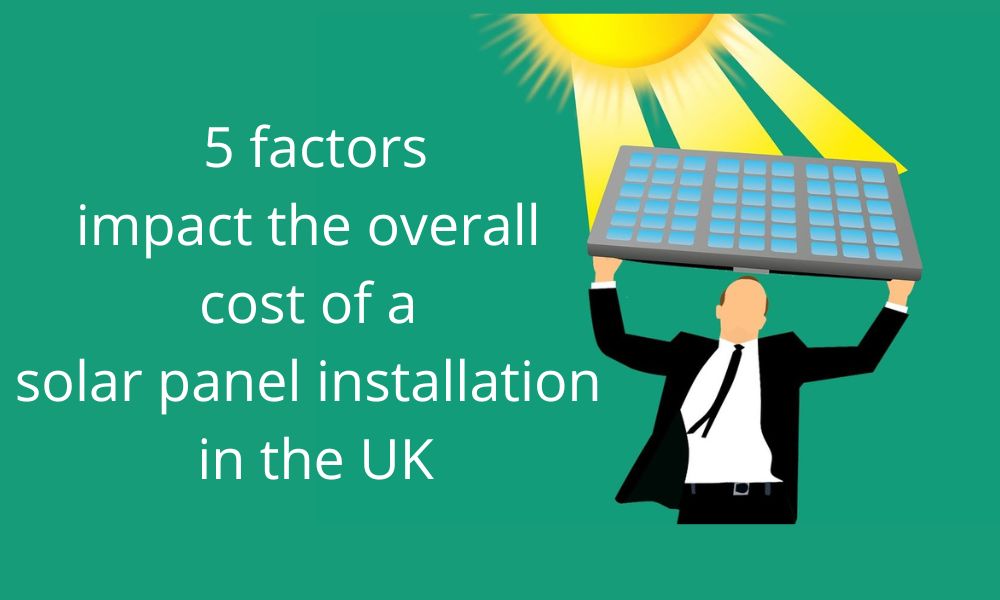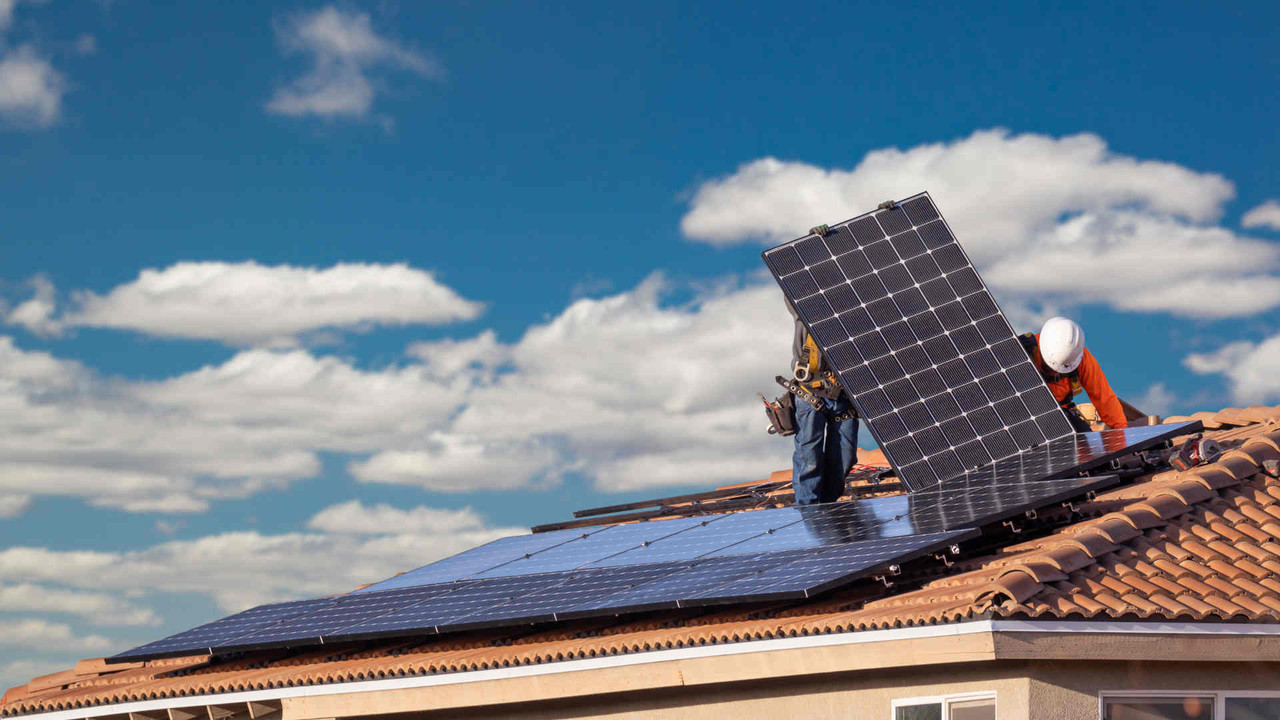How Much Are Solar Panels? | 2023 Guide UK
How Much Are Solar Panels? | 2023 Guide UK
Globally, more than £113 billion was invested into solar energy technology between 2004 and 2019. Solar power is the third-largest renewable energy source in the world, behind only hydro and wind-based power sources. Companies of all types and sizes, as well as private citizens, have come to realize the utility and advantage that solar offers over traditional types of power sources – especially in an age where energy is increasingly expensive and environmental issues are top of mind.
If you’re interested in solar power for your home or business, the first consideration that most people have is: how much are solar panels to purchase? What is the cost to install solar panels, and maintain? Is it worth for the solar panels uk cost? This guide features everything you need to know about solar panels in the UK – their effectiveness, installation cost, maintenance, and what you can generally expect when you choose solar as a power source.
How Much Are Solar Panels in the UK?
Britain, and the UK at large, isn’t exactly known for its warm, sunny weather, which is why it might come as a shock that solar is becoming an increasingly popular alternative energy source throughout the region. The top question that most UK homeowners and business owners have regarding solar is how much are solar panels to install, maintain, and operate – and how much money solar will save them in the long run. Below we cover all aspects of the cost to install solar panels – from batteries to labour, and full installation, and cost of solar panels uk.
How Much Are Solar Panels to Buy?
Without factoring installation costs into the equation, how much solar panels uk cost to purchase solar panels depends entirely on the panel’s wattage, size, use case, panel type, and other factors. For example, you can purchase a small, 10-watt solar panel for about £57.
On the other side of the coin, you can find large 320-watt monocrystalline solar panels that cost upwards of £2,600. It’s always recommended to include installation costs into your budget – DIY solar installation is possible, but it is typically better to let an experienced, professional installation company handle it for you.
Note: Renogy does not have large solar panels like the 320-Watt ones for sale in the UK market currently, but you may put smaller sized solar panels in parallel or series to boost their power output.

Solar Panel Installation Cost
The total cost of solar panels in the UK depends on the solar system’s size, number of panels, and roof space. Naturally, the larger the roof, the bigger the system, and the more electricity generated, the higher the installation cost. For the average UK household, you can expect to pay about £6,000 for solar panels that can generate an appropriate level of power. It should be noted that actual solar panel installation costs are determined by many factors – all of which we cover in greater detail a few sections down.
What Are the Labour Costs?
Solar panel companies in the UK typically charge for labour using one of two ways – by the labourer for each day of the installation, or by charging a set rate per watt. For example, your solar panel company might charge £500 per labourer, per day, or they might charge an industry standard amount per kW, such as 20 pence for each watt of the total installation. Keep in mind that solar panel companies in the UK typically include labour costs in their installation quotes.
Check out here for more information about hiring solar installation contractors in the UK.
Cost of Solar Panels UK– The Latest Data Per kW
According to a 2020-2021 solar photovoltaic (PV) cost data analysis by the UK government, the average prices per kW in the 2020-2021 period were as follows:
●0-4 total kW (i.e., small-scale installations) cost an average of £1,628 per kW.
●4-10 kW installations cost an average amount of £1,685 per kW.
●10-50 kW installations cost an average amount of £1,088 per kW.
In most cases, the larger an installation is, the lower amount per kW you will pay.
Factors Affecting Solar Panel Costs in the UK

Several factors can impact the overall cost of a solar panel installation in the UK. The rates mentioned in the above sections are estimates – the final installation price will be determined by the following:
●The size of your solar panel system
●The type of battery and storage system
●The specific type of panels (e.g., thin-film, monocrystalline, polycrystalline)
●The specifics of the installation on your property (e.g., roof size, square footage, roof shape, etc.)
●The location of the property where you’re installing the panels
One of the best ways to estimate how much your installation will cost is by using a calculator. Renogy has professional a solar calculator to help you plan, budget, and buy the perfect setup for your needs.
How Much Are Solar Panel Batteries
Another top consideration to think about when purchasing a solar panel system is how much the battery, battery storage system, and related components will cost. Solar batteries can seem expensive – the average battery has a cost of £4,000-£5,000 – but the long-term financial and environmental benefits of solar power offset these upfront costs.
Do Solar Batteries Affect the Installation Cost?
Solar batteries are often not included in the cost of installing solar panels because they are usually purchased separately. Depending on the type of battery and battery storage system you purchase, the cost of your installation can increase. The following factors can impact your solar battery and panel system installation cost:
●Brand, type, and quantity of battery
●Whether it’s nickel manganese cobalt (NMC) or lithium iron phosphate (LFP)-based
●How much electrical work will be required during the installation
●Whether or not the battery includes an inverter
One of the main advantages to installing a battery is that you can store the power generated from the panels and essentially live off-grid, or not rely on the national power grid as much as you would without a battery. While not essential, if it falls within your budget and desired capabilities, we generally recommend purchasing a battery for your solar panel system.
How Much Does a 10kW Solar System Cost in the UK?
The price for installing a 10kW solar system depends on many considerations. Are you going to build a hybrid solar system, an on-grid type, or an off-grid type? If you are considering an off-grid solar panel installation for your house and wonder how much are solar panels for a house, the following cost breakdown might be of great help.
As our only purpose here is to let you have a rough understanding of the cost for an off-grid 10kW soalr system, we will just list the main components required and estimate the cost as an example:
Solar arrays: 50x Renogy 200 Watt monocrystallaine solar panels, about £8000.
Mounts and wires: 25x Wiring and Mounting kits for four solar panels setup £1250.
Labour costs: Depends on your roof faces, obstructions, the height of your roof, and more. About £10,000.
Battery storage system: Best over 30kWh. 13x Renogy 12V 200Ah LiFePO4 batteries, around £11,700.
Solar inverter: About £3000.
Charge controller: 2x Rover LI 100Amp MPPT Solar charge controller, about £1300.
Note: Please do not form your own 10kW solar system using the components mentioned above directly. The choice of each component needs accurate calculations. And Renogy 200-Watt monocrystalline solar panels are mainly designed for senarios like small solar systems on the RV. We just use them as an example for a better demonstration of the solar system cost.
Therefore, the rough cost for a 10kW solar system might be anywhere around £35,250.
How Much Do You Save With Solar Panels and Are solar panels worth it in the UK?
We wonder how much for solar panels, are solar panels worth it uk, how can i cover the solar panels price... There are several ways you can save with solar panels – net metering, lowered utility bills, rebates, government-sponsored programs that encourage switching to solar, and various tax benefits. The typical “payback period” for solar panels ranges from 12 years to 18 years, after which your installation, maintenance, and hardware costs would be fully paid off through the savings produced by the solar panels.
Using an average 250kW system, installed on a property with average energy consumption levels, you can save anywhere from £100 to £500 just on energy bills. Factor in the rising costs of energy and utilities, and the solar panels cost savings will continue rising well into the future.
Considering the increasing dramatic enregy conflicts and frequent power outage occurences, investing in a solar powered system is definitely worth it in the long run.
How Effective Are Solar Panels in the UK?
The UK is notorious for overcast, cloudy skies – which makes people wonder: are solar panels worth it in the UK? As a whole, the UK receives an average of four to five hours of direct sunlight per day, and contrary to popular belief, solar panels do not need direct sunlight 24/7 to generate power. In fact, solar panels can still generate power from the sun’s rays even on cloudy or overcast days. Additionally, rain actually helps solar panels function more efficiently by washing away debris, dirt, and other particles that can decrease effectiveness.
Upwards of 1,000,000 homeowners in the UK utilise solar panels, per a 2020 UK government survey, and that number is reportedly on the uptick. According to Solar Energy UK, the UK’s largest solar trade association, over 730MW of solar-powered energy generation was added to the UK in 2021 – marking the most important year ever in the industry’s growth.
Simply put, solar’s popularity in the UK has been growing for years, and it shows no signs of slowing – so yes, solar power is 100% effective in the UK (otherwise there wouldn’t be such strong growth).
UK Solar Power Is Looking Bright
The majority of people are drawn to solar power for its association with reduced energy costs, as well as its ability to curb our impact on the environment. While solar might be a sizeable upfront financial investment for some, in the long-term, solar has proved itself as one of the best alternative power sources to lower energy costs, reduce carbon footprints, and generate cleaner energy.
In the past, solar panels were known for their high installation and maintenance costs – but due to technological advancements in the industry, there has never been a better time to start generating power from the sun. Costs have decreased, demand is up, and the future is bright for solar-powered homes and businesses.
Related articles:
Solar Panel Maintenance Tips and Best Practices
Is the 200W, 600W, or 800W Solar Panel Kit Right For You?
How to Properly Size a PV System
The Best Solar Panel Kit for Beginners
10 common myths about solar power ————Separating fact from fiction when it comes to solar panels







